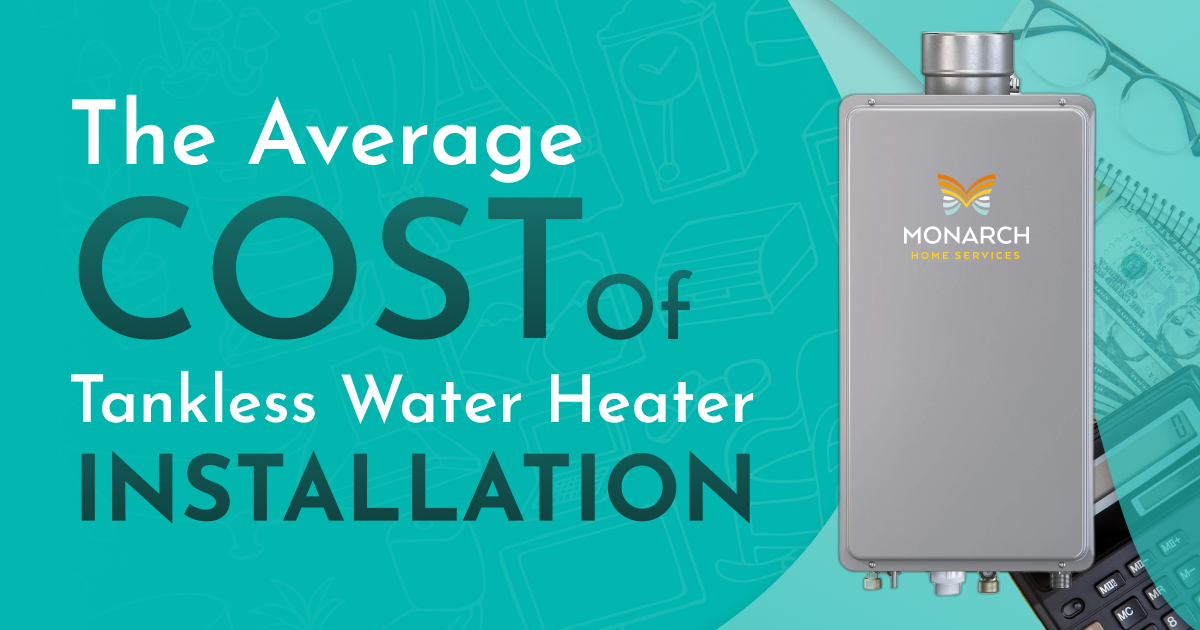Have you noticed your water heater not performing like it used to? Maybe it’s time to consider replacing it.
But before you dive into this decision, you’re probably wondering about the costs involved. Understanding the average cost of water heater replacement can save you from unexpected financial surprises and help you make the best choice for your home. Imagine avoiding cold showers and ensuring you have hot water whenever you need it.
By knowing what to expect, you can plan ahead and find solutions that fit your budget. You’ll discover the factors influencing the cost, tips to save money, and insights on choosing the best option for your needs. Dive in to make an informed decision that brings comfort and efficiency to your home.

Credit: teamaustin.com
Page Contents
Factors Affecting Replacement Cost
Different types of water heaters cost differently. A tankless heater might cost more than a traditional tank heater. Solar heaters can be even more expensive. Choose based on your needs and budget.
Size and capacity matter a lot. A bigger water heater can cost more. It holds more water but might not be needed for small families. Decide based on how much hot water your family uses.
Energy-efficient heaters can save money in the long run. They use less energy and lower your bills. Initial cost might be higher, but savings add up over time. Consider efficiency for future savings.
Labor And Installation Charges
Hiring a professionalfor installation can be costly. The process needs special skills. DIY installation saves money but requires toolsand knowledge. Professionals offer warrantyand safety. DIY lacks these benefits. Each choice has its pros and cons. Think about your budgetand skills before deciding.
Labor fees vary by location. Some places charge more. Hourly ratesrange from $50 to $100. Experience and skills affect rates. More experienced workers cost more. Some companies charge extra fees. These can include travel or materials. Always check for hidden costs. Ask for a quotebefore hiring.
Geographical Variations
Water heater costs vary by region. In cities, prices are often higher. More people need services there. In rural areas, prices might be lower. Fewer people means less demand. Costs depend on local economy. Also, the availability of technicians affects price. In some regions, parts are cheaper. In others, they cost more. Local taxes can impact final price. Weather conditions may change costs too. Cold areas may require special heaters.
Urban costs are usually high. Travel expenses add to the price. Hourly rates might be more in cities. Supply and demand play a big role. Rural areas can offer cheaper services. Fewer choices mean lower prices. Less competition affects costs. Distance to suppliers also matters. Delivery costs can increase final price. Rural places may have limited options. This can lead to fewer discounts.

Credit: homeguide.com
Additional Costs To Consider
Getting a new water heater might need a permit. This is a rule in many places. The cost of a permit can vary. Some areas charge $50, while others might ask for $200. These permits make sure the work is safe. If you skip the permit, there might be fines. It’s important to check your local rules first. Some companies will handle permits for you.
The old water heater needs to be removed. This is not always free. Some services charge to take it away. The cost can be around $50 to $150. It’s good to ask about this cost early. Some places might recycle parts of it. Recycling helps the environment. Always ask if there is a fee for disposal.
Ways To Save On Replacement
Discovering ways to save on replacement can significantly reduce the average cost of water heater replacement. Consider energy-efficient models and compare prices from different suppliers to ensure the best deal. Regular maintenance also extends the lifespan, delaying the need for costly replacements.
Seeking Rebates And Incentives
Many places offer rebatesfor energy-efficient water heaters. These rebates can lower costs. Check with local utilities. They often provide incentivesfor eco-friendly options. Sometimes, government programs help too. These programs aim to save energy. Always inquire about available rebates. It can make a big difference. Rebates and incentives vary by region. Research what applies to your area. Be sure to ask before buying.
Comparison Shopping
Compare prices at different stores. This helps find the best deal. Sometimes, online stores offer discounts. Local shops might match those prices. Always check for seasonal sales. They can provide good savings. Look for discounts and promotions. Many stores offer them regularly. Compare features of water heaters. Some might be more efficient. Efficiency can save money in the long run. Don’t rush your choice. Take time to find the best offer.

Credit: www.monarchhomeexperts.com
Common Mistakes To Avoid
Many people do not check the energy ratingsof a water heater. This can lead to higher electricity bills. Always choose a heater with a good energy rating. It saves money in the long run. A high energy rating means the heater is efficient. This means it uses less power to heat water.
Some people buy the cheapest water heater. This is not always the best choice. A low-cost heater may not last long. It could break down quickly. Spending a bit more on a good quality heateris wise. Good quality means fewer repairs. It also means better performance. Always think about quality before buying.
Conclusion
Replacing a water heater involves costs you should consider. Average costs vary based on heater type and installation complexity. Factor in labor, permits, and disposal fees. Choosing energy-efficient models may save money over time. Research thoroughly before deciding. Compare prices from different installers.
Ask for itemized quotes to understand expenses. Ensure warranty and maintenance options are clear. Budget wisely to avoid surprises. Planning helps prevent future issues. Investing in quality is important. A well-chosen heater can provide comfort and reliability for years.
